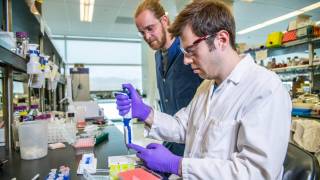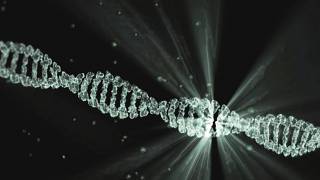Can a 100 Year Old Vaccine Prevent Herpes Infections?

Recurrent infections with herpes simplex virus (HSV) in the orofacial, ocular, or genital region are common and sometimes disabling, calling for effective preventive interventions, said researchers in a recent review published by the Wiley Online Library.
The development of HSV protective vaccines has been an ongoing challenge for decades and continues today.
In this systematic review of Medline, EMBASE, and PubMed studies published on September 24, 2020, and there were 16 articles deemed relevant comprising both animal and human studies (301 patients) regarding the use of the Bacillus Calmette‐Guérin (BCG) vaccine’s off‐target effects that might impact the recurrence of HSV infections.
The BCG vaccine is an attenuated, live culture preparation of the Bacillus of Calmette and Guerin (BCG) strain of Mycobacterium Bovis. This 100-year-old BCG vaccine is targeted against tuberculosis, with protective non-specific effects against other respiratory tract infections.
In non-randomized human studies (that failed to control for a placebo effect), BCG vaccination appeared beneficial in 78 percent of adults with recurrent herpes genitalis or labialis, with 37 percent being recurrence‐free for an extended period, 41 percent experiencing less frequent or severe episodes, and only 22 percent reported no change.
This clinical benefit is consistent with the findings of immunological sub‐studies. In the two studies restricted to recurrent herpes labialis, 94 percent appeared to benefit from BCG.
In animals, BCG administration led to a 1.9 to 5.5‐fold increase in survival rate following HSV challenge (vaginal, corneal, or intraperitoneal inoculation).
This beneficial effect in animals was influenced by the dose of BCG (higher better), mode of administration (intradermal better than intraperitoneal), and the interval between vaccination and viral challenge (at least 6-days required).
In conclusion, these researchers stated, ‘ the BCG vaccine is a potential, safe, affordable vaccine candidate, however, it is very limited in availability.'
However, ‘properly controlled randomized trials are required in the future.’
Research funding for this study was from Schweizerischer Nationalfonds zur Förderung der Wissenschaftlichen Forschung, Grant/Award Number: Early Postdoc.Mobility grant number P2GEP3_178155. No industry conflicts were disclosed.
Genital herpes is a common, sexually transmitted disease that any sexually active person can get. Most people with the virus don’t have symptoms. Even without signs of the disease, herpes can still be spread to sex partners.
More than 15 percent of people aged 14 to 49 years have genital herpes.
‘There is no cure for herpes, but medication is available to reduce symptoms and make it less likely that you will spread herpes to a sex partner,’ says the US Centers for Disease Control and Prevention (CDC).
A leading vaccine candidate in a clinical study is HSV529, which is classified as a replication-defective virus. The virus possesses all the wild-type HSV virus components except two proteins UL5 and UL29, involved in viral DNA replication.
This phase 1/2 study was last updated on November 27, 2020, by Sanofi Pasteur.
PrecisionVaccinations publishes research-based vaccine development news.
Our Trust Standards: Medical Advisory Committee

























